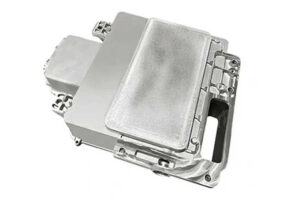Medical Die Casting: Advancements in Precision Manufacturing for Healthcare Industry

In recent years, the healthcare industry has embraced technological advancements to enhance patient care, improve medical device functionality, and streamline manufacturing processes. One such innovation is the utilization of medical die casting, a precision manufacturing technique that offers numerous benefits in terms of cost-effectiveness, design flexibility, and production efficiency. This article will explore the concept of it, its applications in healthcare, and the advantages it brings to the industry.
Understanding Medical Die Casting:
Medical die casting is a manufacturing process that involves injecting molten metal, often aluminum or zinc alloys, into a die or mold cavity at high pressure. Once the molten metal solidifies, the die is opened, and the resulting part, also known as a casting, is ejected. This technique allows for the production of complex, three-dimensional parts with tight tolerances and excellent surface finishes.
Applications in Healthcare:
It finds wide-ranging applications in the healthcare industry, contributing to the production of high-quality medical devices, instruments, and components. Some common applications include:
1. Surgical Instruments: It enables the production of precise, lightweight surgical instruments with intricate designs. These instruments offer improved ergonomics, durability, and performance, enhancing surgical outcomes.
2. Implants and Prosthetics: The ability to produce intricately shaped and highly customized implants and prosthetics is facilitated by medical die casting. This technique ensures accurate dimensions, optimal strength, and biocompatibility, leading to better patient comfort and functionality.
3. Diagnostic Equipment: It allows for the fabrication of complex parts used in diagnostic equipment, such as X-ray machines, ultrasound devices, and imaging systems. These parts offer excellent electrical and thermal conductivity, ensuring accurate readings and reliable performance.
Advantages of Medical Die Casting:
1. Design Flexibility: It enables the production of intricate, complex geometries that would be challenging to achieve with other manufacturing methods. This flexibility allows for the creation of innovative medical devices and components.
2. Cost-effectiveness: The high production rates and low per-unit costs associated with medical die casting make it an economically viable choice for healthcare manufacturers. This process reduces material waste and requires minimal secondary operations, leading to optimized production efficiency and reduced overall costs.
3. Exceptional Precision and Quality: It results in parts with tight tolerances, excellent surface finishes, and high-dimensional accuracy. This precision ensures the integrity and functionality of medical devices, promoting patient safety and reliable performance.
4. Enhanced Material Properties: Aluminum and zinc alloys commonly used in medical exhibit desirable characteristics such as lightweight, durability, corrosion resistance, and thermal conductivity. These properties contribute to the development of high-performance medical devices.
Conclusion:
It has emerged as a transformative technique in the manufacturing of medical devices, instruments, and components. Its ability to produce intricate designs, cost-effective production, exceptional precision, and enhanced material properties make it an attractive choice for the healthcare industry. As technology continues to advance, medical die casting will likely play a vital role in shaping the future of precision manufacturing in healthcare, enabling improved patient care and better healthcare outcomes.






